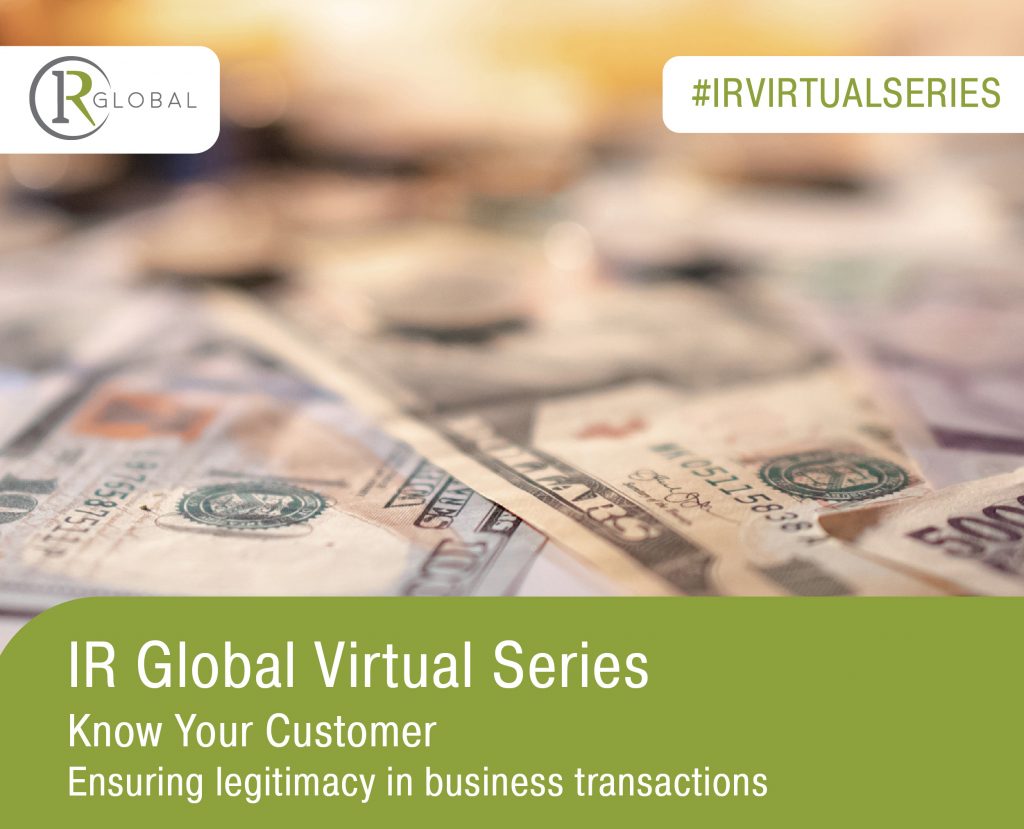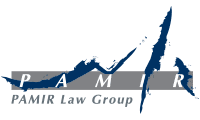Nicholas V. Chen was featured in a report titled “Know Your Customer: Ensuring Legitimacy in Business Transactions”, published by IR Global. The report features advice from several IR Global members, and Nick shared his insight on China and Taiwan issues.
See excerpts from Nick’s answers to the IR Global Team’s questions below.

| QUESTION 1
What are the international and country-specific regulations that clients must comply with, or account for, when seeking to do business in your jurisdiction?
We operate in both China and Taiwan which are mature jurisdictions as investor destinations and sources of outbound investors and capital.
In recent years, both Taiwan and China have become increasingly large net exporters of technology, investors and investment funds. Our business works with private and publicly listed multinational corporate and financial vehicles, private family groups as well as state-owned enterprises.
In every transaction, whether one is acting as a professional service provider or intermediary representing a client, or if one has direct privity of contract in a transaction with a China/Taiwan counterpart, it is important to prudently manage one’s risk. This requires the implementation of proper market specific Know Your Client (KYC) due diligence, as well as Source of Funds due diligence. In other words, is the counterpart ‘clean’ and are the transaction funds clean?
As the Organization for Economic Cooperation and Development (OECD) rolls out its AML/KYC rules globally, both Taiwan and China have also many locally-enforced laws and regulations that dovetail to ensure consistent compliance against tax evasion, money laundering, sanctions and terror financing. The enforcement efforts against corruption have been widely publicised and expanded; professionals and private parties ignore these realities at their peril. China has imprisoned over 1.2 million persons (government and party officials) on corruption charges alone.
In previous years, where legal and regulatory gaps existed in cross-jurisdictional enforcement, we are now seeing coordinated and consistent enforcement, transparency and accountability being required by regulators and regulated parties in both jurisdictions. What is important to remember is that (i) both the giver and the taker are both liable, (ii) cross-border ‘blind spots’ have been eliminated with global cooperation across jurisdictions, and (iii) “shell companies” and “nominees” are now subject to strict scrutiny. In addition, not only is a direct party liable, but also professional service providers are exposed for involvement in a suspect transaction.
As China and Taiwan are subject to both international and local AML/KYC laws, professional service providers must take additional steps to protect themselves (and their clients). This should be done both at the client onboarding stage as well as during the entire term of the professional relationship.
Professional service firms are now required to proactively safeguard against anti money laundering (AML) and many other compliance issues. It’s irresponsible to be doing any business without disciplined due diligence and caution. This is especially challenging since the international KYC/AML requirements apply, but there is no single easy online database service to complete a desktop onboarding check.
| QUESTION 2
What are the best practice KYC procedures that you would recommend when engaging in a new business transaction in your jurisdiction?
In our decades of experience, no amount of good lawyering or professional services saves a company from a bad partner selection decision. We constantly see parties who do not have the tools or common sense to undertake market-specific due diligence when selecting a partner, co-operator, supplier, distributor, key service provider or key employee or outside contractor. Anyone who plays a key role in the business should be considered for onboarding and/or ongoing periodic checks. In an increasingly corrupt jurisdiction, it is naïve to assume that the business is not subject to compromise or erosion. Protecting one’s business is increasingly challenging and extends to all aspects to the company’s “assets” including physical, personnel, intellectual property, trade secrets/know-how and all aspects of the value of the business.
One of the most common and biggest mistakes we have seen is for foreign parties to conduct an English Google search and believe that this is a due diligence check. First, there are no official records in English for Taiwan or China. Google is banned in China so this naïve approach is a search for nothing. All official records are done in Chinese. Media reports are in Chinese. Different information is kept in different databases. Few databases will have a statement that says ‘we will not steal from you in the future.’ Due diligence is not about checking a document or a database; it is about verifying information in the context of a changing society. If one doesn’t understand that society, how can one exercise proper scrutiny and understand what to look for and what one is observing.
Proper market specific due diligence in partner selection applies in the context of acquisitions or sales, supply chains when selling or procuring and also when hiring key managerial and technical staff and service providers. Relying on foreign databases when critical information is not publicly available in English is naive.
Generally, in partner selection, one needs to focus on two things: Is this person clean? and Is this person’s money clean?
If the answer to either of these questions is not a clear affirmative, it means there is exposure and risk as a direct party, or a service provider, representing a client.
The responsible professional must position to protect the client as well as themselves. They need for a seasoned local co-counsel to conduct the local KYC/AML due diligence is a prudent choice.
| QUESTION3
Under what scenarios do clients need to follow a strict KYC process in your experience – when are they most
at risk?
Some professionals in their practice rely on the KYC that is done by the referring source professional. I had a situation recently where a service provider was taking advice from a client of theirs. They were asking me to provide service on a referral that they received from a large international bank based in Hong Kong. I didn’t trust the bank’s onboarding or their KYC, because they have been fined many times.
A lot of people automatically will trust banks, but I will automatically distrust a bank. When I asked the intermediary who had received the client referral from the bank about the KYC, he told me not to worry about it. I was polite and reminded myself to be civil; but I knew then that this was not going forward. We turned the project down and we turned down the opportunity to work with a huge accounting firm. They told me they had many cases like this, but I said I only needed one to get myself in deep trouble.
So the KYC process to protect everybody in the service chain has to be about risk appetite. if the referring source doesn’t have the same risk appetite as you, it doesn’t work. Each one of us, as a top-tier service provider, has a zero risk tolerance. The partners and the colleagues in your firm are not going to forgive you if you bring in a new client, but didn’t check.
Your reputation is worth far more than any fee that you could generate on some small matter. As a result, KYC applies in all cases, for all onboarding, in all transactions. Nobody can afford to get it wrong and everybody has to be clean.
Financial transactions coming out of China, first have to deal with the foreign currency conversion issue. Then the issue is whether the funds are lawfully earned and are post-tax dollars. We’ve set up a system for the source of funds report where we are involved a Certified Public Accountant (CPA) that we’ve worked with for 20 years.
We know that the guy cannot be bought and we do an official translation in order to ensure full disclosure by the client. There are nine sources of funds and they have to show where it came from, before the accountant signs off, plus there’s a physical report that is delivered. Every transaction coming in to China should have this. I believe that we are very much the exception to the rule right now, but I believe within a few short years everybody will be required to do it.
I know major Chinese law firms that are not doing KYC and they do not know how to do source of funds reports. This is shocking to me, because it is where the international practices and the local practices have diverged, but the truth is that China will be required to comply, because it is such an international jurisdiction.
